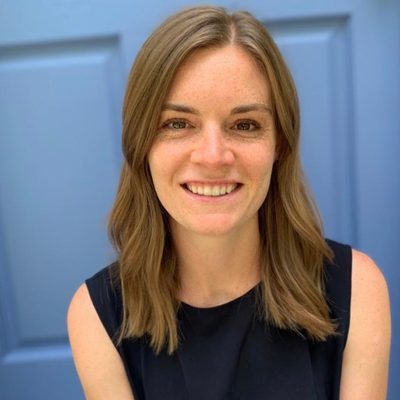A Discussion with Faculty Director Kiley Kost


What inspired you to run the German Studies in Berlin program? What do you hope to accomplish?
Next year (Fall 2022) will be my first time leading Carleton’s German Studies in Berlin study abroad program. This program is perfect for students wanting to improve their German language skills in an immersive environment. Berlin is not only one of Europe’s most fascinating cities (due to its rich culture, history, theater, arts, and more), but it is also Germany’s largest city, geographically-speaking. As such, it is an excellent setting in which Carleton students can study the German language and learn to navigate a big-city setting.
What makes this program different from other German study abroad programs?
German Studies in Berlin differs from other German study abroad programs in that the courses are often directly linked to the excursions that we go on. For example, as an extension of the course that I will be teaching (titled “German in Motion: Migration, Place, and Displacement”), we will travel to locations in and around Germany pertaining to important epochs in German immigration/emigration history.
Additionally, the German Studies in Berlin program is tailored to fit the traditional Carleton curriculum. Courses taken while on this program supplement/enrich the German courses offered on campus, which makes it easy for students to get credit for their studies abroad and jump right back into their German education upon their return to campus.
What does a typical day look like on your program?
The program is broken down into two primary components: 1) classes, some of which are taught by local German faculty and some of which are taught by me; and 2) cultural excursions.
Each student will be placed in a German language class suited to their abilities, and all students will take a course on Berlin Memory Politics and a course on German Migration. We will talk extensively about Berlin’s fascinating history and witness firsthand (through a series of field trips to monuments, memorials, and museums) how this history has been memorialized in the city itself.
What does the housing situation look like, and what are the benefits of this living arrangement to students?
Students will be living with German individuals/families in a homestay setting. These homestays are scattered throughout the entire city, which gives students the opportunity to see/experience sectors of the city that they might not otherwise have been able to explore. Students housed away from the city-center will take the U-Bahn (Germany’s mass transportation system) each morning to class.
One of the benefits of the homestay arrangement is that students will learn to navigate living & sharing spaces with German-speaking individuals. Program participants from years past have reflected that it was through their homestay experiences that they learned the most about German culture, values, traditions, and family life. Plus, living with a native German speaker is one of the best ways to utilize and improve your German language skills!
What are you most looking forward to?
I am most looking forward to seeing the students grow more confident in their language skills and watching them learn to navigate different cultural experiences. Furthermore, I am excited to see if/how living in a different country might affect the students’ ways of viewing the world, even after returning to Carleton.
What advice would you give to students to encourage them to study abroad during their Carleton career? What benefits do you see to the experience in general?
I know that this is a relatively cliche thing to say, but studying abroad is truly a life-changing experience. Students will be given the opportunity to discover interests and passions that they might not have known about before.
I believe that removing yourself from a familiar environment and immersing yourself instead in a new context can radically change the way in which you view the world (including everyday, “mundane” occurrences such as going to the grocery store). You become so much more attentive to what is going on around you, and you come to appreciate the little things in life.
Kiley Kost is a Lecturer in German. She has been teaching at Carleton College since 2019.